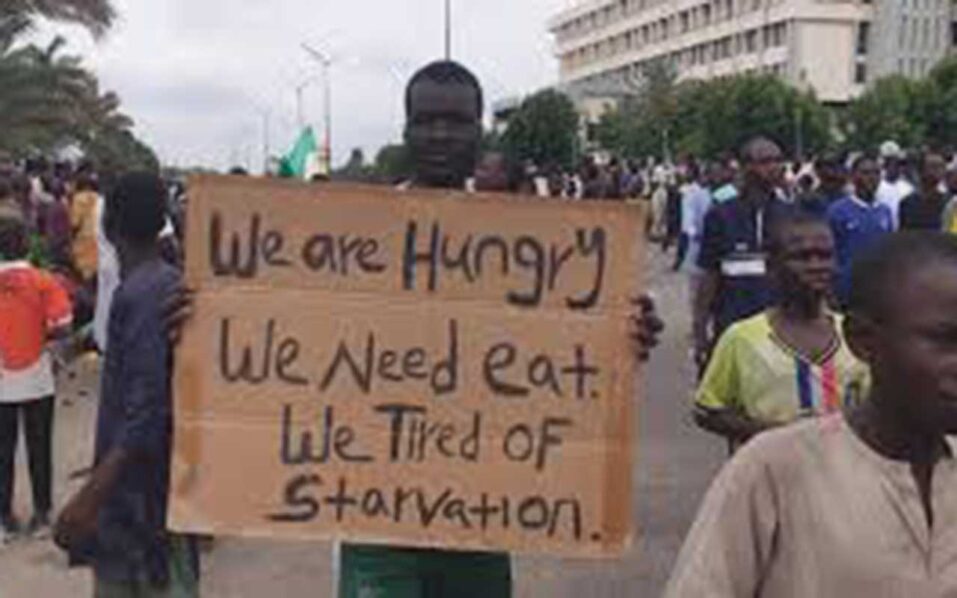
THE Economic Community of West African States (ECOWAS) has predicted that about 47 million citizens in the region will face food crisis between June and August if immediate steps are not taken to strengthen its emergency response mechanisms while trying to consolidate sustainable resilience strategies.
The Commissioner for Economic Affairs and Agriculture of the bloc, Mrs. Massandjé Toure-Litse, gave this prediction at the opening of the third meeting of the Management Committee of the Regional Food Security Reserve (RFSR) on Monday.
Toure-Litse noted that about 34.7 million people currently need immediate food and nutrition assistance.
She, however, expressed fears that the food and nutrition security situation in West Africa and the Sahel has deteriorated considerably in recent years.
Represented by the Acting Executive Director, Regional Agency for Agriculture and Food, Mr. Mohammed Zongo, the commissioner explained that the nutritional crisis has persisted in several areas of the region with acute malnutrition rates ranging between 10 and 14 per cent.
“Analyses carried out in December 2024, based on the Harmonized Framework, revealed that nearly 34.7 million people required immediate food and nutrition assistance. If appropriate measures are not taken, this figure could reach 47 million by the lean season of between June and August.
“Faced with this worrying situation, aggravated by multiple challenges – geo-political reconfiguration of the region, persistent conflicts, economic crises, climate change and chronic food insecurity, it is imperative that our region strengthens its immediate response mechanisms while consolidating the foundations of sustainable resilience.”
According to her, food security stocks remained the key social protection tool used at local, national and regional levels to respond effectively to food crises.
She added that the meeting would serve to take stock of the operations carried out by the Regional Reserve since March 2023 based on the guidelines of the Executive Board, particularly with regard to purchases, interventions, stock replenishment, technical rotations and the identification of new storage spaces.
“It will also allow us to plan the operations planned for 2025 and ensure that we support Member States in caring for the populations most affected by food, nutritional and pastoral crisis.
“Our discussions and decisions will thus ensure transparency, efficiency and fairness in the management of the Reserve, while adapting it to the present and future challenges.
“For almost 10 years, our actions have been part of the regional storage strategy. We have learned many lessons by comparing the theory of the regional storage strategy with the practice of its implementation. We are also facing new challenges related to the changing socio-political context in our region and at the global level.
“This is the reason we must adjust the strategy and the operating rules of the Regional Reserve with the aim of strengthening the coordination and effectiveness of our collective action.”
Speaking, Nigeria’s Minister for Agriculture and Food Security, Abubakar Kyari, said the food challenge is a reminder of the urgent need to strengthen strategies and response instruments to effectively deal with the crisis.
Represented by the Permanent Secretary in the Ministry, Mr. Marcus Ogunbiyi, the Minister described the food Reserve as an essential pillar of the region’s collective strategy for responding to food and nutrition crisis.
“This meeting is taking place at a worrying moment of our region when food security situation has worsened due to conflicts, economic instability and devastating impact of climate change – a situation compounded by a decline in funding, geo-political concerns in the region and general lack of access to food.”
The Minister noted that the challenges confronting the region speak volume of the need for sovereign financing of agriculture.
The Regional Food Security Reserve was established in 2013 by the ECOWAS Heads of State and Government to support member states, Chad and Mauritania in managing food crises.
It currently has a projected storage of more than 74,000 tons of food, stored in different areas of the region.






